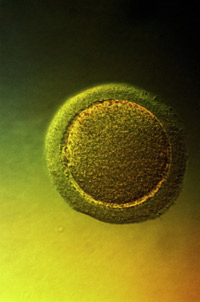When deliberating over the intricacies of egg donation, one question often arises from potential donors: Can you donate eggs if you smoke? The answer isn’t as straightforward as one might assume. In fact, smoking may not only jeopardize your eligibility but also affect the health of the eggs and the potential future child. Let’s peel back the layers of this subject and explore the implications of smoking on egg donation.
First, it’s crucial to understand what egg donation entails. Women donate their eggs for various reasons, often to help couples struggling with infertility. The donation process involves hormone injections, retrieval procedures, and sometimes, emotional responsibility. Because of the level of commitment involved, donors must undergo rigorous screening which encompasses medical history, lifestyle choices, and more. Yes, smoking can play a substantial role in this assessment.
But why does smoking cast a shadow over egg donation? Well, nicotine and other harmful chemicals in cigarettes affect overall health and reproductive capacity. Numerous studies have demonstrated that smoking can lead to reduced ovarian reserve and poorer egg quality. In essence, smoking may compromise your ability to produce viable eggs, which is pivotal for successful fertilization and healthy pregnancies.
Those curious about the direct impact of smoking on egg quality may be surprised to learn there are both short-term and long-term effects. In the immediate term, smoking can influence your hormonal balance, leading to irregular menstrual cycles and delayed ovulation. Furthermore, long-term smoking can induce damage to the reproductive system, leading to a decrease in fertility and an increase in the risk of infertility. When it comes to egg donation, the quality and quantity of the eggs are paramount. A single poor-quality egg can limit the chances of conception, ultimately influencing the success of the IVF process.
It’s not just the act of smoking that presents challenges; it’s the broader lifestyle associated with it. Smokers frequently face other health complications, such as cardiovascular issues and higher susceptibility to infections. These conditions may adversely affect the egg donation process or recovery from the retrieval procedure. Clinics are keenly aware of these factors, making it more likely that a smoking candidate would be deemed ineligible or advised against proceeding with the donation.
But the conversation doesn’t end there. One might wonder if there are any nuances to this rule. For instance, what if a potential donor is in the process of quitting or has recently quit? In these cases, the eligibility determination can become a gray area. Some clinics adopt a more lenient approach, allowing women who have successfully given up smoking for a certain period to undergo egg donation. Generally, a cessation period of three to six months is often suggested. This gives time for the body to detoxify and improve overall egg quality.
In light of this, it’s also essential to discuss the notion of harm reduction. While quitting smoking is ideal, many still face the challenge of nicotine addiction. For those embroiled in this struggle, considering alternative methods—such as nicotine patches or other cessation aids—might be beneficial. These practices can potentially reduce the reliance on cigarettes while minimizing the detrimental effects on egg donation prospects.
Additionally, the implications of smoking during pregnancy cannot be ignored, especially for those considering becoming mothers through donor eggs. If an egg from a smoker is fertilized and implanted, the subsequent pregnancy could face heightened risks. These include low birth weight, premature birth, and increased risk of developmental issues in the child. In light of such risks, the ethical considerations of donating eggs as a smoker emerge, making this a weighty decision.
Conversing about the facts can feel rather heavy, but it’s important to consider the broader societal implications of smoking and fertility. With a growing emphasis on health awareness, potential egg donors are increasingly encouraged to embrace healthier lifestyles. Through this lens, smoking can be seen not just as a personal choice but as a responsibility to future families, creating a ripple effect that endorses healthier reproductive habits across communities.
So, in conclusion, the answer to “Can you donate eggs if you smoke?” leans heavily toward the affirmative but in a conditional framework. While outright smoking may bring forth considerable obstacles, the paths to eligibility can sometimes accommodate those on the journey to quitting. Expecting exceptional egg quality must remain at the forefront of aspiration, necessitating reflection on personal health and lifestyle choices.
Ultimately, the decision to donate eggs is deeply personal and requires contemplation on numerous factors—including smoking. No decision made in haste could be ideal for both the donor and the future child. Therefore, those entertained by the idea of donation should seek comprehensive information and support, perhaps even from professionals or support groups, ensuring a well-rounded approach to the journey of egg donation.
